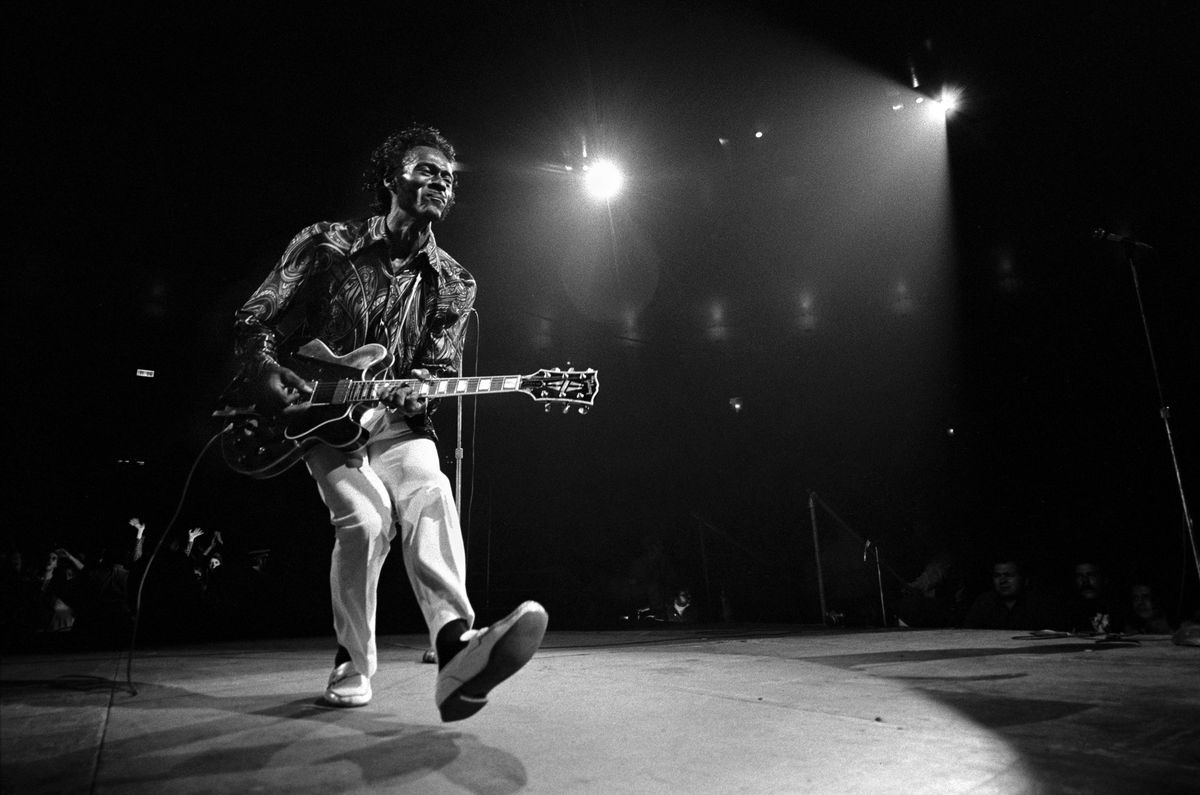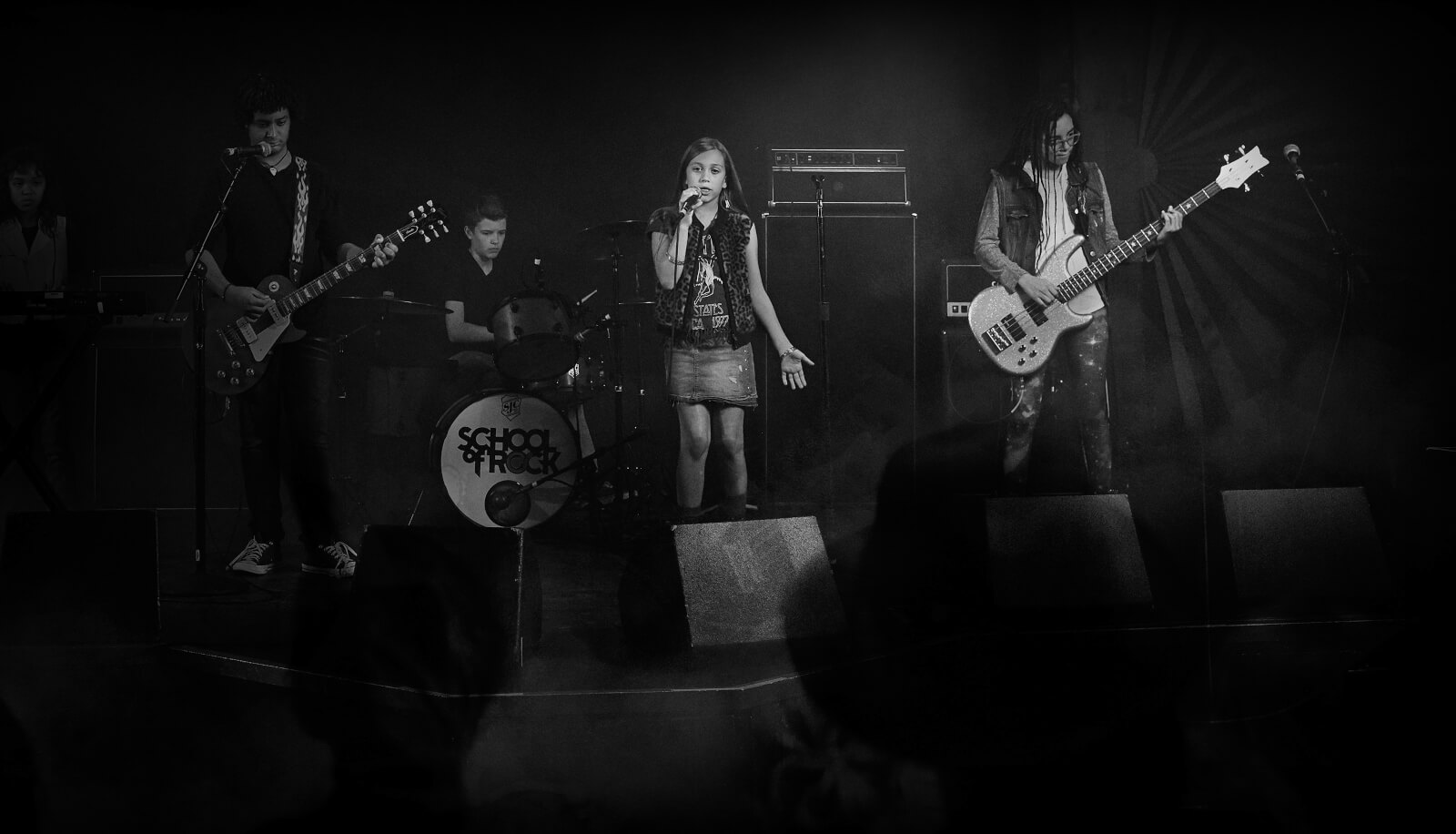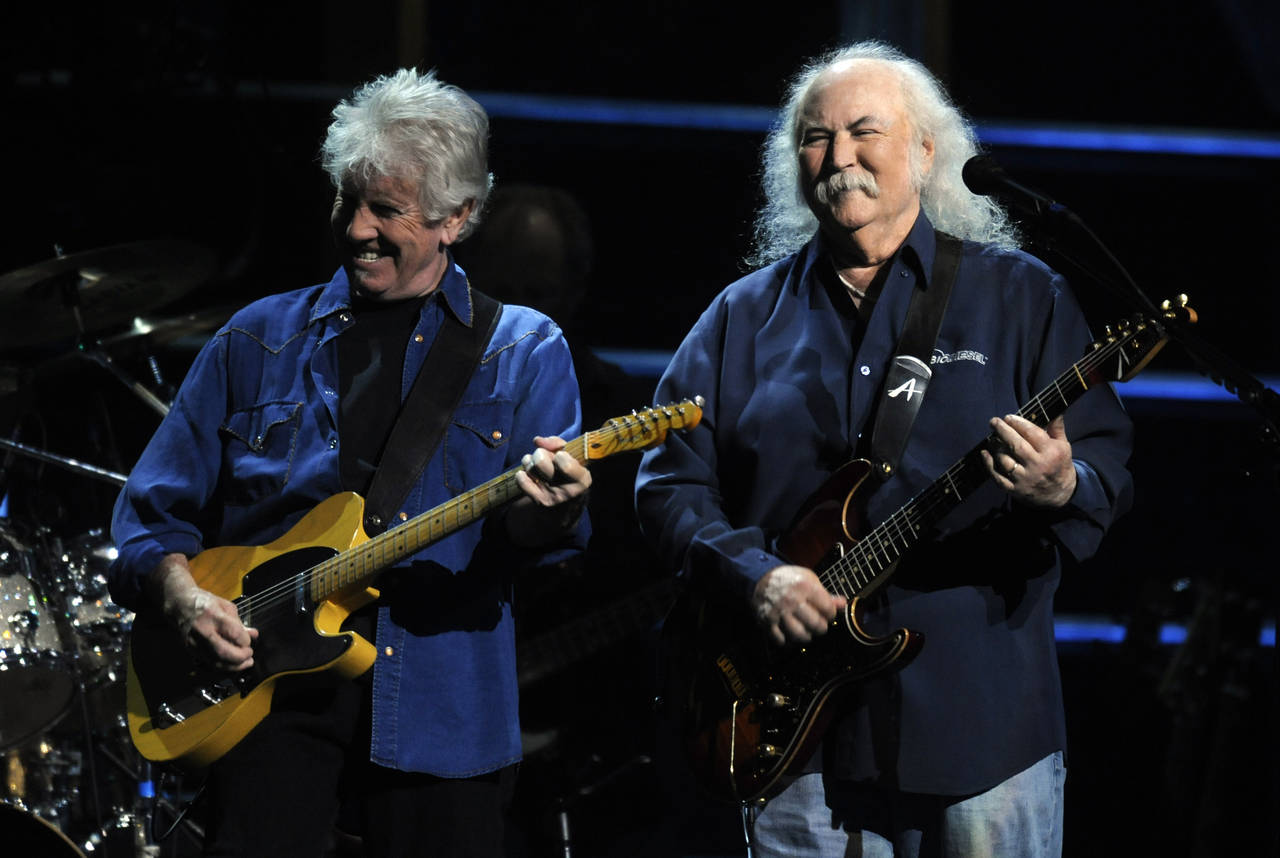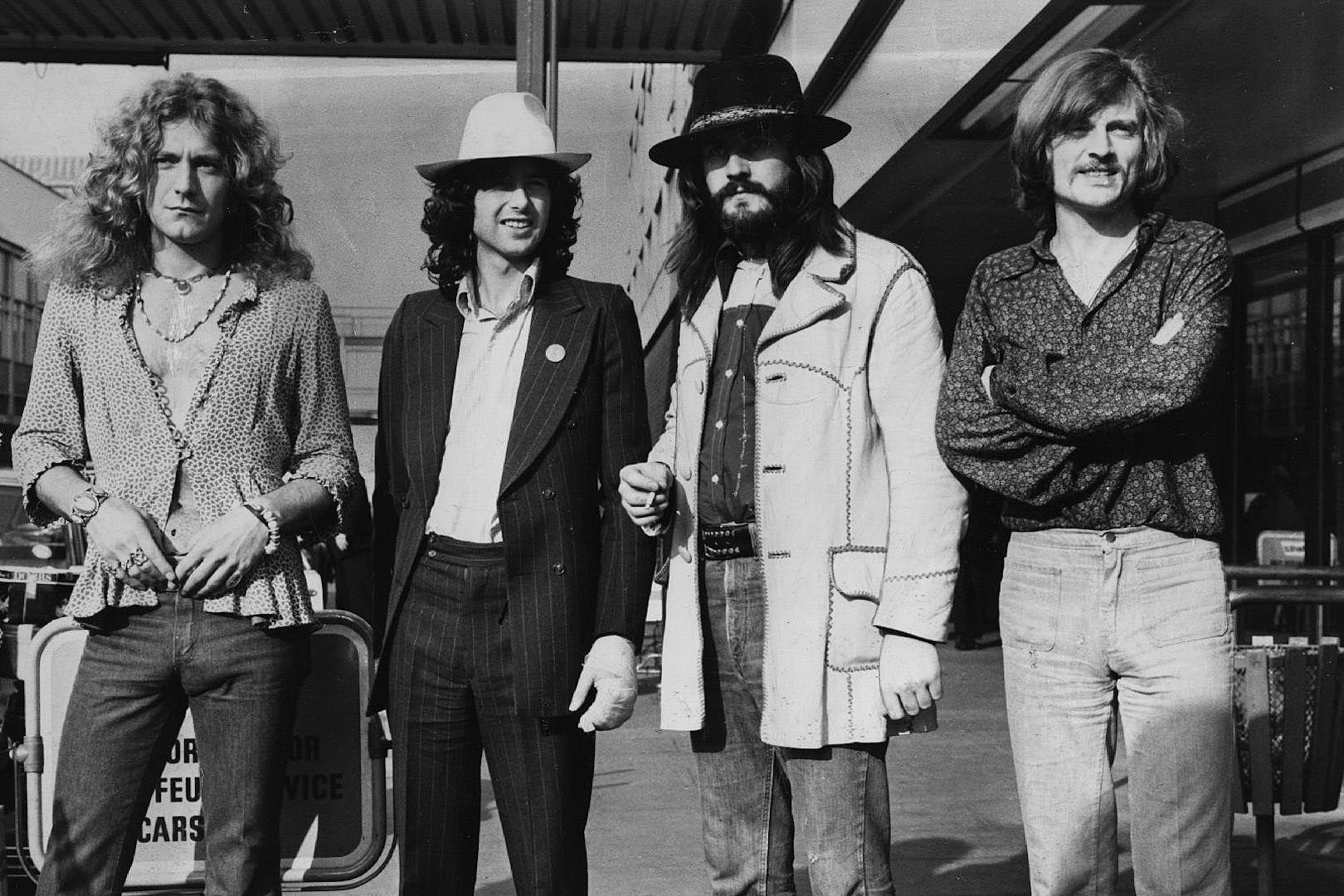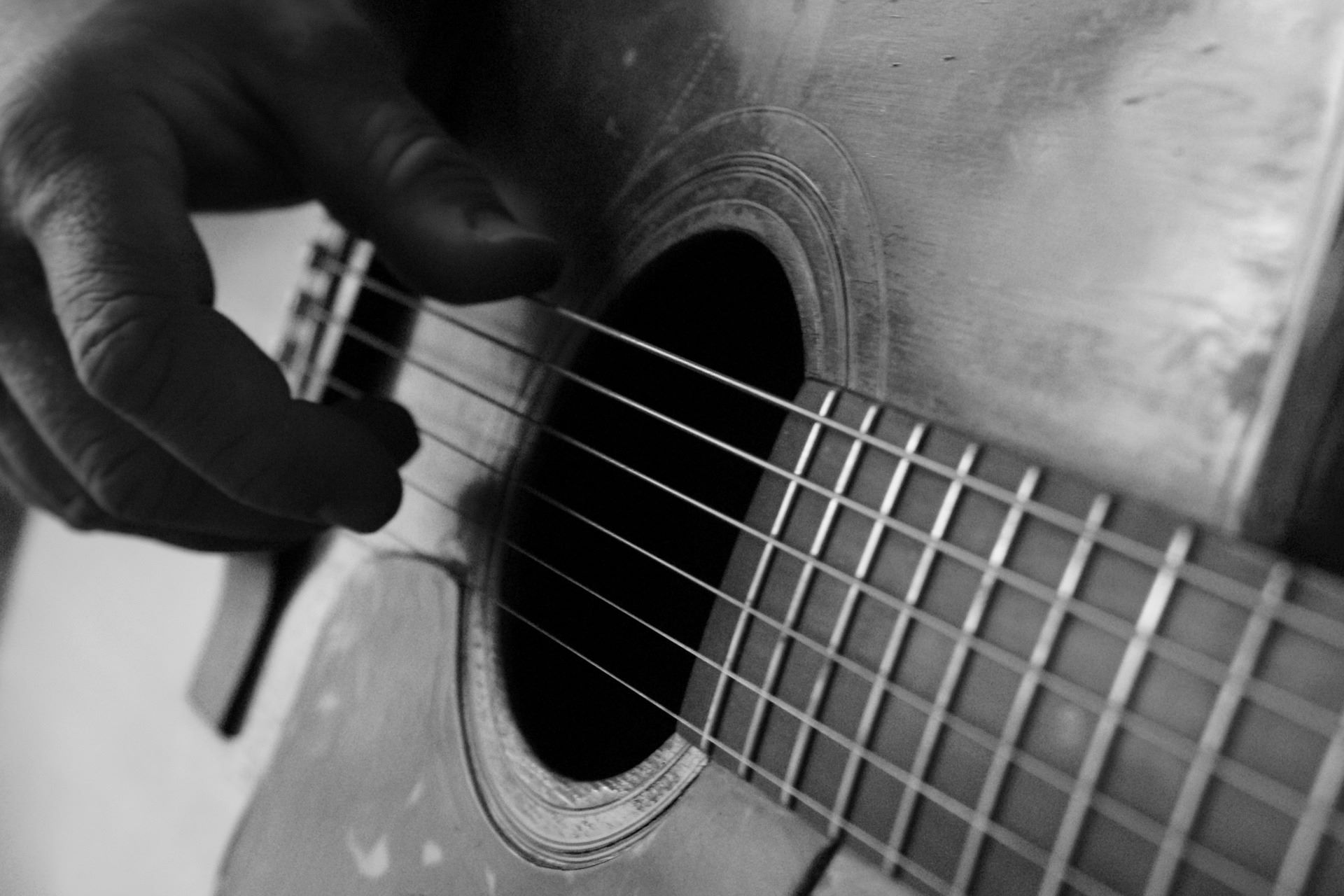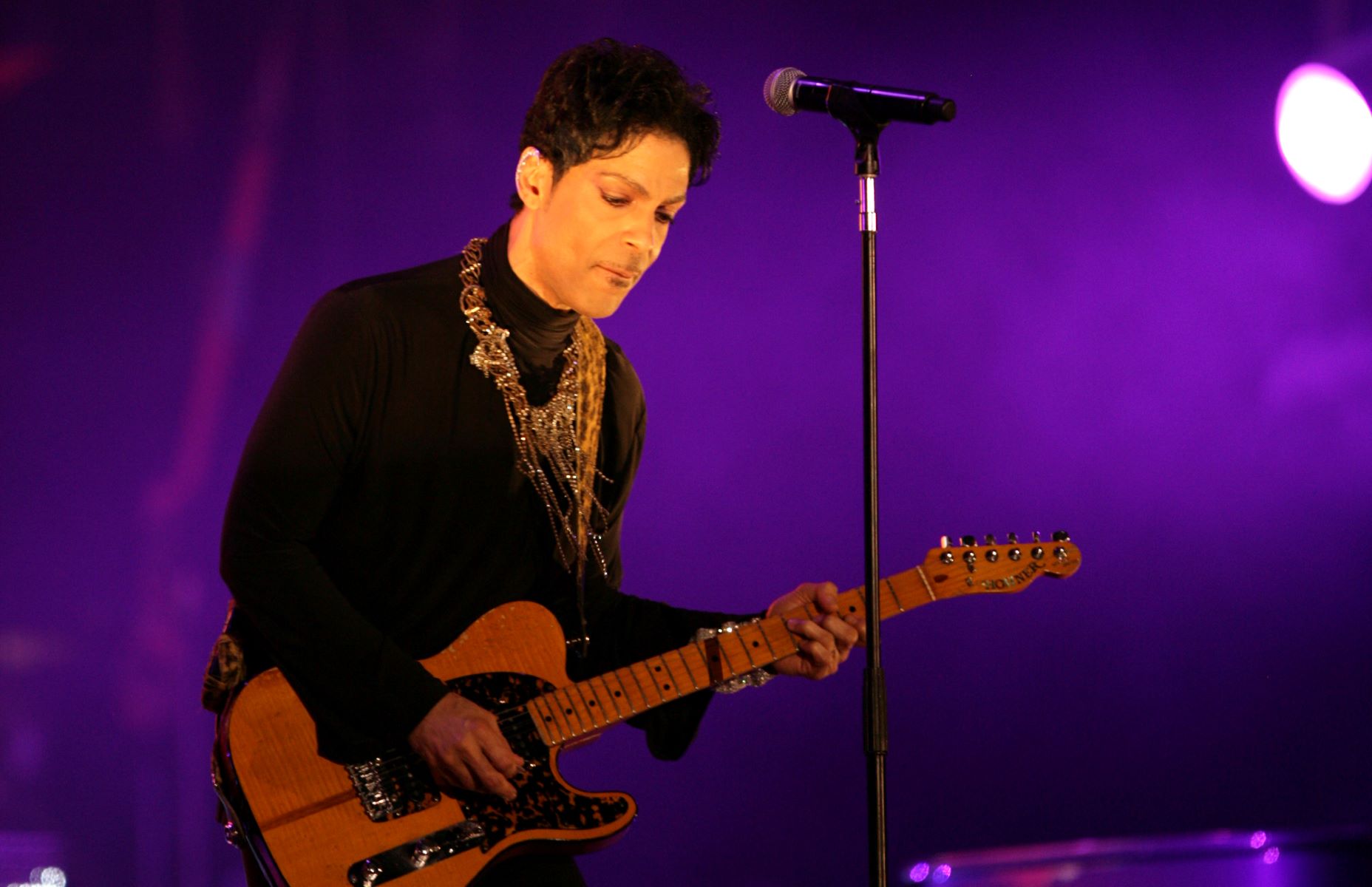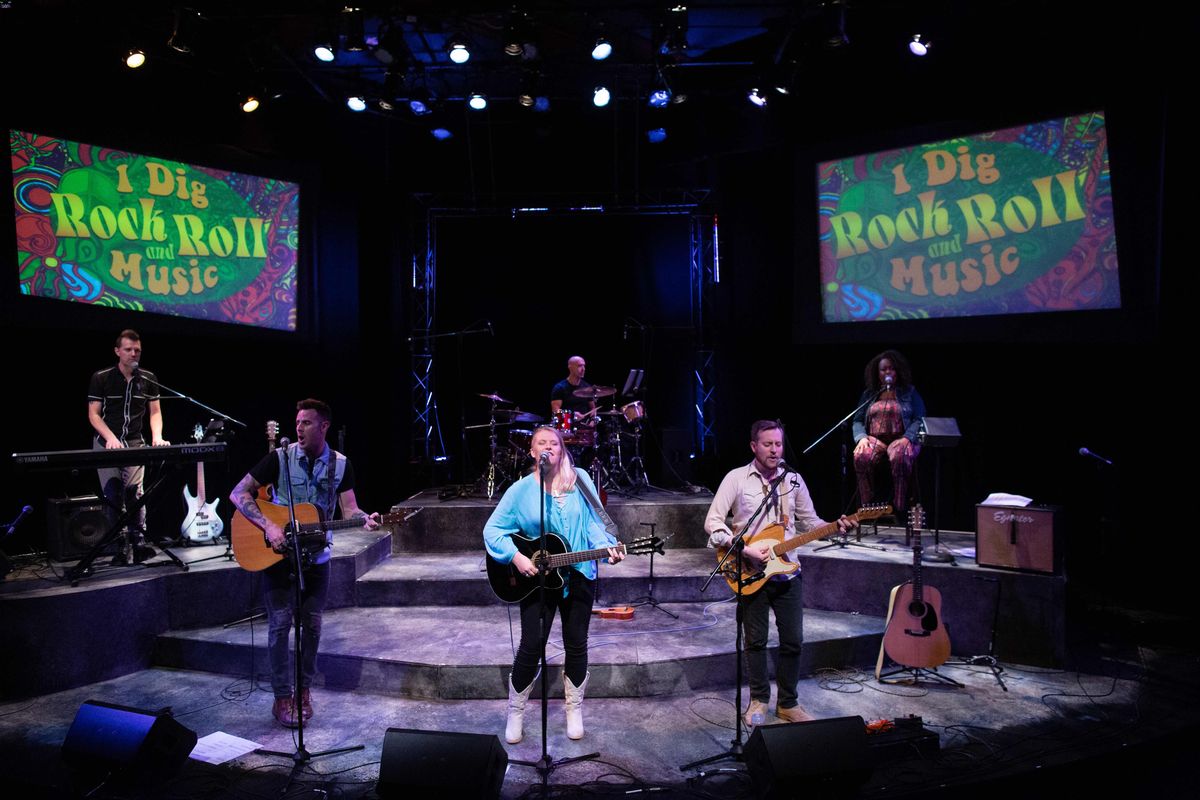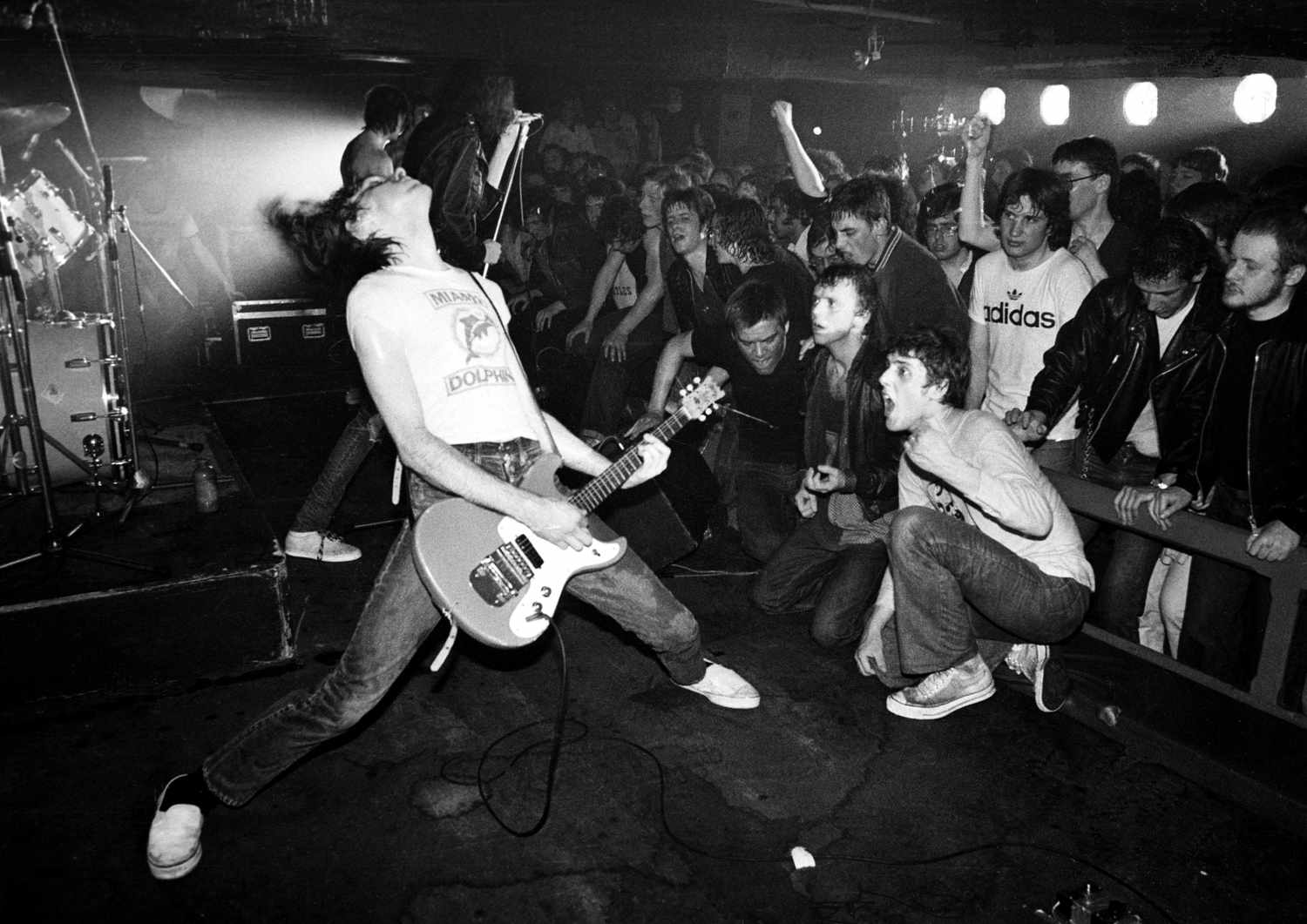

Rock
Who Created Punk Rock Music
Published: November 2, 2023
Discover the pioneers who created the rebellious sounds of punk rock music. Explore the history and influence of this genre that challenged the conventions of mainstream rock.
(Many of the links in this article redirect to a specific reviewed product. Your purchase of these products through affiliate links helps to generate commission for AudioLover.com, at no extra cost. Learn more)
Table of Contents
Introduction
Punk rock, the rebellious and energetic music genre that emerged in the 1970s, has left an indelible mark on the music industry and popular culture as a whole. Known for its raw sound, DIY ethos, and provocative attitude, punk rock has challenged societal norms and redefined the boundaries of music.
With its roots in the counterculture movements of the 1960s and the dissatisfaction of the working-class youth, punk rock emerged as a voice for the disillusioned. It offered a cathartic outlet for those who felt alienated by the mainstream music scene, providing an avenue for self-expression and social commentary.
Punk rock music was characterized by its stripped-down, fast-paced sound, characterized by short, aggressive songs that often tackled political or societal issues. The genre rejected the polished and commercialized sound of mainstream rock at the time, opting instead for a raw and unapologetic approach to music-making.
Furthermore, punk rock was more than just a genre; it was a subculture that encompassed a distinctive fashion sense, DIY aesthetics, and a rebellious attitude. Punk fashion, with its leather jackets, torn jeans, and spiky hair, became an iconic symbol of the punk movement.
In this article, we will explore the origins of punk rock, the key players who propelled it to prominence, and its lasting impact on music and society. From the pioneers of punk, such as The Ramones, The Clash, and The Sex Pistols, to the evolving sounds of punk rock today, we will delve into the rich history and cultural significance of this influential genre.
So, buckle up and get ready to dive into the fast-paced, anarchic world of punk rock music!
Early Influences
Punk rock didn’t emerge out of thin air; it was deeply influenced by various musical and cultural movements that came before it. These early influences helped shape the sound, attitude, and aesthetic of punk rock, laying the foundation for what was to come.
One of the key influences on punk rock was garage rock, a raw and primitive form of rock ‘n’ roll that emerged in the 1960s. Garage rock bands, known for their low-fi recordings and rebellious spirit, provided a template of stripped-down, high-energy music that punk rock would later build upon. Bands like The Sonics, The Kingsmen, and The Seeds embodied the DIY ethos and brought a sense of rebellion to their music.
Another significant influence on punk rock was the protopunk movement, which emerged in the late 1960s and early 1970s. Artists such as Iggy Pop and The Stooges, MC5, and The Velvet Underground showcased a raw and intense sound, often characterized by aggressive guitars, confrontational lyrics, and a rejection of mainstream conventions. These bands laid the groundwork for the aggressive and rebellious nature of punk rock.
The DIY (Do-It-Yourself) philosophy, which became a core principle of punk rock, can be traced back to the punk precursor, Dadaism. Dadaism was an artistic and intellectual movement that emerged during World War I, characterized by an anti-establishment attitude and a rejection of traditional values. The Dadaists embraced a DIY approach, creating their own art, music, and performances outside of traditional institutions. This spirit of rebellion and non-conformity resonated with the emerging punk rock movement.
In addition to the musical influences, social and political factors also played a significant role in shaping the early punk rock scene. The socio-economic unrest and political disillusionment of the 1970s, particularly in countries like the United States and the United Kingdom, fueled the anti-establishment sentiments that defined punk rock. The punk movement became an outlet for young people to express their frustration, anger, and dissatisfaction with the status quo.
As we delve deeper into the birth and evolution of punk rock, it’s crucial to recognize these early influences and their impact on shaping the unique sound and attitude of the genre. From garage rock to protopunk, from Dadaism to social and political upheaval, these influences laid the groundwork for the explosive and rebellious force that was about to be unleashed onto the music scene.
The Birth of Punk
The birth of punk rock can be traced back to the mid-1970s, primarily in the United States and the United Kingdom. It was a time of social unrest, economic turmoil, and a growing disillusionment with the mainstream music industry. Out of this environment emerged a genre that would revolutionize the music scene and become a symbol of rebellion and authenticity.
In the United States, the birth of punk rock can largely be attributed to the underground music scene in New York City, particularly in the neighborhood of CBGB. This iconic venue became a breeding ground for a new wave of musicians who were disenchanted with the prevailing rock trends of the time. Bands such as Television, Patti Smith Group, and the New York Dolls began to experiment with a raw and aggressive sound, rejecting the excesses of stadium rock and seeking to recapture the energy and authenticity of early rock ‘n’ roll.
Meanwhile, across the Atlantic in the United Kingdom, a similar movement was taking place. The punk scene in London, centered around venues like the 100 Club and the Roxy, became a hotbed for bands seeking to challenge the establishment and make a statement. It was here that iconic bands like The Clash, The Sex Pistols, and Siouxsie and the Banshees burst onto the scene, igniting a cultural revolution.
The birth of punk rock was characterized by a “do-it-yourself” (DIY) ethos, with many bands self-releasing their music, creating their own album covers, and booking their own shows. This independent approach, in contrast to the highly commercialized music industry, gave punk artists a level of freedom and authenticity that resonated with audiences.
The punk movement was not only defined by its rebellious sound but also by its provocative and confrontational attitude. Punk musicians openly challenged the establishment, addressing social and political issues such as unemployment, urban decay, and the disconnect between the youth and the ruling class. Their lyrics and performances were often laced with aggression, nihilism, and a desire for change.
Despite facing criticism and resistance from the mainstream, punk rock quickly gained a dedicated and passionate following. Its energizing and relatable nature provided an outlet for the frustrations and desires of alienated youth. The rawness and authenticity of the music struck a chord with a generation disillusioned by the polished and commercialized rock ‘n’ roll that had dominated the airwaves.
As the punk movement gained momentum, it sparked a wave of cultural and musical innovation. The birth of punk rock challenged the status quo and paved the way for a new era of music, setting the stage for the punk bands that would come to define the genre in the years ahead.
The Ramones: Pioneers of Punk Rock
When discussing the origins and pioneers of punk rock, it’s impossible to overlook the profound influence of The Ramones. Hailing from Forest Hills, Queens, The Ramones burst onto the scene in the mid-1970s with their signature blend of fast, aggressive, and stripped-down rock ‘n’ roll.
The Ramones’ self-titled debut album, released in 1976, is often hailed as one of the most influential punk rock records of all time. With its simple and catchy melodies, short and energetic songs, and lyrics that tackled themes of teenage angst, The Ramones set the blueprint for what punk rock would become.
One of the defining characteristics of The Ramones was their uniformed look: leather jackets, ripped jeans, and shaggy haircuts. This distinctive image not only set them apart visually but also reinforced their rebellious and anti-establishment stance. The Ramones demonstrated that punk rock was as much about style and attitude as it was about the music itself.
Beyond their musical contributions, The Ramones brought an infectious energy and a sense of unity to the punk rock scene. Their live performances were legendary, characterized by blisteringly fast tempos, relentless energy, and an unwavering dedication to the punk ethos. The Ramones revolutionized the live music experience, inspiring countless bands to pick up their instruments and create their own music.
While their commercial success may not have matched their impact on the punk rock movement, The Ramones left an indelible mark on the genre. Songs like “Blitzkrieg Bop,” “I Wanna Be Sedated,” and “Rock and Roll High School” remain timeless anthems that embody the spirit of punk rock.
Moreover, The Ramones’ influence extended far beyond their initial run in the 1970s. They were a major influence on subsequent punk and alternative rock bands, with their fast and catchy song structures inspiring countless musicians around the world. The Ramones demonstrated that punk rock was not just a fad but a legitimate and enduring genre that would continue to evolve and inspire generations to come.
Even after the band’s dissolution, The Ramones’ impact on popular culture remains apparent. Their iconic logo, featuring the names of the band members in block letters, has become a symbol of punk rock itself. Their music continues to reverberate through the airwaves, reminding us why The Ramones will always be revered as the pioneers of punk rock.
The Clash: Revolutionizing Punk
While The Ramones laid the foundation for punk rock, it was The Clash who took the genre to new heights and pushed its boundaries. With their blend of punk, reggae, rockabilly, and political activism, The Clash revolutionized punk and solidified their place as one of the most influential bands of all time.
Formed in 1976 in London, The Clash quickly rose to prominence with their self-titled debut album in 1977. The album showcased their distinctive sound, combining the raw energy and aggression of punk with a socially conscious and politically charged message. Songs like “White Riot,” “I’m So Bored with the U.S.A.,” and “London Calling” became anthems for a generation disillusioned with the state of the world.
What set The Clash apart from their peers was their willingness to experiment and incorporate a wide range of musical influences into their music. While punk rock was often associated with a minimalistic and aggressive sound, The Clash expanded the sonic palette of the genre. They drew inspiration from genres like reggae, ska, rockabilly, and even disco, infusing these elements into their songs and pushing the boundaries of what punk could be.
However, it was not just their musical experimentation that made The Clash revolutionary; it was their unwavering commitment to political and social activism. The band used their platform to raise awareness about issues such as social inequality, racial tension, and the struggles of the working class. Their lyrics were thought-provoking, addressing themes of racism, war, and social injustice.
The Clash’s political activism extended beyond their music. They actively supported various social causes and participated in protests and demonstrations. The band’s engagement with political issues elevated punk rock beyond simply a genre of music and turned it into a vehicle for social change.
In addition to their musical and social contributions, The Clash influenced countless bands and artists who came after them. Their fearless approach to pushing boundaries and challenging conventions inspired a whole generation of musicians to explore new sonic territories and use their music as a means of expressing their ideals.
Although The Clash disbanded in 1986, their impact continues to be felt to this day. Their albums remain timeless classics, their influence can be heard in the music of bands across genres, and their legacy as revolutionaries in the punk rock movement remains firmly intact. The Clash proved that punk rock could be more than just a style of music; it could be a powerful force for social change and an avenue for expressing dissent and rebellion.
The Sex Pistols: Anarchy in the Punk Scene
When it comes to embodying the spirit of punk rock, few bands have done it as fiercely and controversially as The Sex Pistols. Emerging from the underground punk scene in London in the late 1970s, The Sex Pistols went on to become one of the most notorious and influential bands in the history of music.
The Sex Pistols were known for their confrontational and provocative approach to music, using their music as a weapon to challenge societal norms and authority. Led by the enigmatic and polarizing frontman Johnny Rotten, the band embraced anarchy as their rallying cry, giving voice to the frustrations and anger of a generation.
With songs like “Anarchy in the U.K.,” “God Save the Queen,” and “Pretty Vacant,” The Sex Pistols captured the spirit of rebellion and discontent that defined punk rock. Their aggressive and raw sound, combined with outrageous behavior and controversial lyrics, shocked and outraged mainstream society.
The band’s confrontational tactics were on full display during their live performances, which often descended into chaos. Their gigs were marked by violence, onstage confrontations, and an overall sense of unpredictability. The Sex Pistols became the embodiment of everything that scared and threatened the establishment.
Beyond their music, The Sex Pistols pushed boundaries through their iconic visual imagery and fashion choices. Their aesthetic, defined by torn clothes, safety pins, and provocative slogans, became synonymous with punk rock and an emblem of youthful rebellion. The band’s rebellious image soon translated into a cultural movement, inspiring countless fans to embrace punk fashion and DIY aesthetics.
While The Sex Pistols’ time as a band was short-lived, their impact on the punk rock scene was immeasurable. They were instrumental in popularizing punk rock and bringing it into the mainstream consciousness. The Sex Pistols forced people to pay attention, sparking heated debates about punk’s effect on society and the role of music as a vehicle for change.
Despite the controversy and internal strife that ultimately led to their demise, The Sex Pistols left an indelible mark on music and popular culture. They shattered conventions, challenged authority, and paved the way for future generations of punk bands.
The Sex Pistols’ legacy extends beyond their music; they represented the unapologetic and rebellious spirit of punk rock. Their commitment to anarchy and nonconformity inspired countless musicians and fans to embrace punk as more than just a genre of music, but as a way of life.
The Influence of British Punk
The British punk rock scene of the late 1970s was a hotbed of creativity, rebellion, and innovation that left an indelible mark on the music industry and beyond. With bands like The Clash, The Sex Pistols, and Siouxsie and the Banshees at the forefront, British punk brought a unique and radical energy to the punk movement, influencing a generation of musicians and artists.
One of the defining characteristics of British punk was its social and political commentary. At a time of political and economic turmoil in the UK, punk bands used their music to address issues such as unemployment, social inequality, and the stagnant state of the economy. Songs like The Clash’s “White Riot” and The Sex Pistols’ “God Save the Queen” became rallying anthems for the disenfranchised and disenchanted youth.
British punk also embraced a DIY ethos and a spirit of rebellion. Many bands self-released their music, booked their own shows, and created their own album covers. This independence allowed them to bypass the traditional music industry gatekeepers and maintain their authenticity and creative control. The DIY approach of British punk inspired a generation of musicians to take matters into their own hands and make music on their own terms.
In addition to the music, British punk had a distinct fashion and aesthetic that became just as iconic as the music itself. Bands and fans alike embraced a rebellious and provocative style, with torn clothes, provocative slogans, and spiked hair becoming symbols of punk culture. This visual identity helped solidify the rebellious image of British punk and made a lasting impact on fashion and popular culture.
Furthermore, British punk introduced a sense of subversion and anarchy into the music scene. The Sex Pistols, notorious for their confrontational and controversial behavior, epitomized the rebellious spirit of punk. Their outrageous performances, chaotic live shows, and unapologetic attitude challenged societal norms and shocked the establishment.
The influence of British punk extended far beyond the music itself. The punk movement in the UK sparked a cultural revolution that encompassed art, fashion, and even politics. It inspired a wave of creativity and paved the way for new forms of expression and individuality.
The impact of British punk on subsequent music scenes cannot be overstated. It served as a blueprint for countless bands and genres that followed, from post-punk and new wave to alternative and indie rock. The attitude, energy, and inventive spirit of British punk continue to reverberate through the music of contemporary artists.
Overall, British punk was a catalyst for change, breaking down barriers and redefining the boundaries of music and culture. Its influence continues to shape the music industry and inspire artists to challenge the status quo and champion their own unique voices.
The American Punk Explosion
While British punk rock was making waves in the late 1970s, the United States was experiencing its own punk revolution. The American punk scene, centered primarily in cities like New York, Los Angeles, and San Francisco, exploded with a raw and unruly energy that pushed the boundaries of music and subculture.
In New York City, iconic venues like CBGB and Max’s Kansas City became breeding grounds for a new wave of American punk bands. The Ramones, Blondie, Talking Heads, and Television were amongst the pioneers of this movement, offering a distinctively American take on punk rock. These bands fused catchy melodies with edgy lyrics, creating a sound that was infectious, rebellious, and uniquely their own.
The American punk scene was characterized by a DIY approach and a spirit of artistic experimentation. Bands had the freedom to create their own music, book their own shows, and make their own record releases. Labels like Sire and independent imprints such as SST and Dischord Records emerged, giving a platform to American punk musicians and ensuring their music reached the ears of eager listeners.
One of the defining features of American punk was its regional diversity. While the East Coast produced bands with a distinctively fast and aggressive sound, the West Coast punk scene embraced a more diverse range of influences. Bands like X, Black Flag, and Dead Kennedys blended punk with elements of art-rock, surf, and hardcore, creating a sound that was raw, intense, and often politically charged.
Lyrically, American punk addressed a range of issues including social inequality, political corruption, and the alienation of youth. Bands embraced a confrontational and often nihilistic attitude, using their music as a platform to challenge societal norms and express their dissatisfaction with the status quo. American punk bands amplified the voices of the marginalized and offered an outlet for those who felt disconnected from mainstream society.
The American punk explosion had a significant impact on the underground music scene, spawning subgenres such as hardcore punk and post-punk. Additionally, it laid the groundwork for the burgeoning alternative rock movement of the 1980s and beyond. Bands like Nirvana, Sonic Youth, and Green Day, among others, drew inspiration from American punk’s rebellious spirit and DIY ethos, helping to shape the alternative music landscape for years to come.
The legacy of the American punk explosion can still be felt today. Its influence on music, fashion, and cultural subversion remains apparent in contemporary music scenes worldwide. American punk redefined what it meant to be a musician, encouraging individuality, creativity, and DIY ethics. It proved that anyone with a passion for music and something to say could make their mark on the world, regardless of their background or resources.
Ultimately, the American punk explosion was a force of liberation and innovation. It amplified the voices of the disaffected, challenged societal norms, and revolutionized the music scene, solidifying its place in history as a truly revolutionary movement.
Women in Punk Rock
Punk rock has always been associated with a rebellious and anti-establishment spirit, and women have played a crucial role in shaping the genre. From the early days of punk in the 1970s to the present, women have been at the forefront, challenging societal norms, and breaking barriers in the male-dominated music industry.
Women in punk rock have not only contributed musically but have also been trailblazers in terms of redefining gender roles and paving the way for future generations of female musicians. They have used their platform to address issues such as sexism, gender inequality, and body image through their music and performances.
Pioneers like Patti Smith, Joan Jett, and Exene Cervenka demonstrated that women could be just as fierce, raw, and influential as their male counterparts. They broke down barriers, defied expectations, and showed that women could be powerful forces in the punk rock movement.
In addition to their musical contributions, women in punk have been instrumental in creating a sense of inclusivity and community within the scene. Riot grrrl bands like Bikini Kill and Bratmobile in the 1990s used punk as a platform to address feminist issues and promote female empowerment. They encouraged women to pick up instruments, form bands, and speak out against sexism and misogyny.
Moreover, women in punk have challenged traditional beauty standards and subverted societal norms through their fashion choices. They embraced a DIY aesthetic, creating their own unique styles that rejected the mainstream’s expectations of femininity. Their punk fashion became a powerful form of self-expression and a way to resist societal pressures to conform.
Despite the progress, women in punk rock continue to face challenges and obstacles. Sexism, stereotyping, and lack of representation persist in the music industry. However, many women continue to defy these barriers and carve out their own space in punk and its subgenres.
Today, the influence of women in punk rock can be seen in bands like Sleater-Kinney, The Distillers, and Savages, who draw inspiration from the rebellious spirit and DIY ethos of their predecessors.
Women in punk rock have left an enduring impact on the genre. They have shattered stereotypes, raised their voices, and paved the way for future generations of female musicians. Their contributions have not only enriched the punk scene but also helped shape the broader cultural landscape by challenging norms, advocating for equality, and inspiring countless individuals to embrace their own uniqueness and fight for their rights.
Punk Rock Today
Punk rock, despite its origins in the 1970s, continues to thrive and evolve in the present day. While the punk scene may have changed over the years, the spirit of rebellion, authenticity, and DIY ethos remains at its core.
One of the defining characteristics of punk rock today is its diversity. The genre has expanded to encompass various subgenres and fusions, including pop-punk, punk revival, hardcore punk, and post-punk. This diversity keeps the genre fresh and relevant, attracting new audiences while retaining its dedicated fanbase.
Modern punk bands continue to use their music as a platform for social and political commentary. They address issues such as climate change, social injustice, mental health, and the struggles of marginalized communities. Punk rock today remains a means of expressing dissent, provoking thought, and promoting activism.
The DIY ethos is still embraced by many punk bands in the modern era. Artists self-release music, book their own tours, and connect directly with fans through social media and independent platforms. This level of independence allows for artistic freedom and a deeper connection between musicians and their audience.
The influence of technology has also played a significant role in shaping punk rock today. Bands use social media platforms and streaming services to promote their music, connect with fans, and organize grassroots movements. Punk has become more accessible and inclusive than ever before, enabling artists from all backgrounds to make their voices heard.
Furthermore, punk rock continues to provide a platform for underrepresented voices. Women, LGBTQ+ artists, and musicians from marginalized communities are using punk to challenge societal norms and fight for representation and equality in the music industry.
Punk rock today also embraces a wide range of visual aesthetics and fashion styles. While some bands maintain the classic punk look with torn clothes and vibrant hair, others experiment with different fashion influences, including goth, grunge, and indie aesthetics. The visual component of punk has always been a form of self-expression and continues to evolve with the times.
Despite the evolution and diversification of punk rock, its essence remains unchanged. Modern punk bands are still motivated by a desire to challenge the status quo, express themselves authentically, and make a statement. Punk rock today may sound different and have its own distinct characteristics, but it remains a vibrant and vital force within the music industry.
As the world continues to change, punk rock will undoubtedly continue to evolve and adapt. It will remain a symbol of rebellion, a source of inspiration, and a rallying cry for those who seek to challenge the norm and create a more inclusive and equitable society.
Conclusion
Punk rock has had a profound and lasting impact on the music industry and popular culture. From its early influences to the birth of punk and the rise of influential bands like The Ramones, The Clash, and The Sex Pistols, the genre has shaped the course of music history. With its rebellious spirit, DIY ethos, and willingness to challenge societal norms, punk rock has provided a platform for self-expression, social commentary, and cultural subversion.
Throughout its evolution, punk rock has remained a voice for the disenchanted and a catalyst for change. Women have played a vital role in punk, breaking down barriers and challenging gender norms in a male-dominated industry. The influence of punk continues to be felt today, as the genre evolves and diversifies with new subgenres and a growing recognition of intersectionality.
Punk rock today remains a vibrant and vital force, embracing technology, pushing boundaries, and amplifying the voices of the marginalized. It continues to inspire and empower new generations of musicians and fans, providing a space for rebellion, creativity, and activism.
As we look back at the history and impact of punk rock, it’s clear that its legacy extends far beyond the music itself. Punk rock has become a symbol of freedom, individuality, and the power of collective action. It has challenged the mainstream, pushed artistic boundaries, and reminded us of the importance of authenticity and self-expression.
In a world where conformity and commercialization often dominate the music industry, punk rock stands as a reminder that rebellion and creative expression are essential. It encourages us to question authority, challenge societal norms, and fight for what we believe in. Punk rock will always be a testament to the power of music to incite change, provide solace, and unite people in their shared experiences.
So, whether you’re a die-hard punk fan or just discovering the genre, embrace the energy, the attitude, and the spirit of punk rock. Let it inspire you to question, create, and celebrate your own individuality. Punk rock may have emerged decades ago, but its influence and legacy continue to reverberate through our culture, reminding us to stay true to ourselves and never stop fighting for what we believe in.

